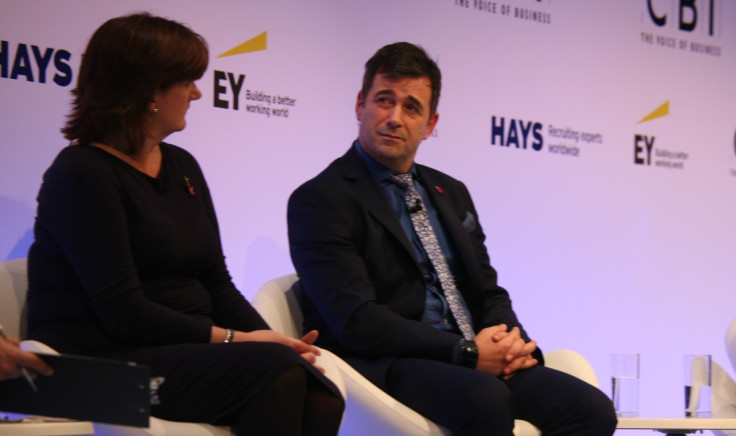Skills gap: Siemens UK CEO Juergen Maier urges education and skills gap to be filled by EU workers

The UK needs the European Union to fill the skills and vocational training gap in the country, the UK CEO of Siemens has said. In an interview with IBTimes UK, Juergen Maier said Britain's education system cannot fill the gap.
"In countries like Germany, Austria and Netherlands, the vocational training is just a lot better and a lot more present," he said. "There, it's almost like, you can't get a job really, unless you've been through a vocational training route."
Considering four out of the world's top 10 universities are British, it is no surprise the country scores well in terms of academia, but job-targeted education is still lacking. Many UK graduates and professionals do not have the necessary manual skills.
"We need to fill that requirement from within the EU," Maier said. "You can't always be the best at everything and so, sometimes, either it might be that there's a shortage of a particular technical area, or is may well be that you need some help to set something up, but the good news is once you've set something up, it actually creates jobs for British people."
According to Engineering UK, there will be more than 2.6 million job openings between 2015 and 2022. The organisation argues the UK needs double the amount of advanced engineering apprenticeships.
"I do fundamentally believe that in every country, and Britain is no different to that, you should have a huge focus on educating your own people to the highest possible level," Maier said. Because of UK's great academic track record, the jobs that require manual skills are more well paid as companies are keen on hiring people with science, technology, engineering and mathematics [STEM] skills and knowledge.
The average starting salary for engineering and technology graduates is £26,536 in 2015, against a mean starting salary of £21,725 for graduates who have studied other subjects.
"We are at the moment building our whole wind building blade manufacturing facility that's going to create 1,000 jobs," Maier said about Siemens, which reported a 4% increase in third quarter sales on 12 November.
"In the end, it will be some 95% local people but the skill for building that factory is currently in Denmark and in northern Germany. So initially, we asked Danish and German people to help us set up the facility, but in the end it will create jobs for British people. We just did not want to reinvent the wheel by doing something in the UK that we had already done in Germany."
© Copyright IBTimes 2025. All rights reserved.






















